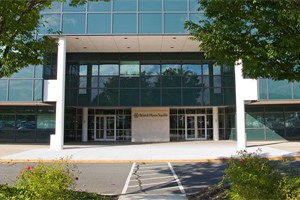 BMS has rounded off a good week after securing a $1bn deal for access to a new therapeutic vaccine by gaining a rapid approval for a new lung cancer licence for Opdivo (nivolumab).
BMS has rounded off a good week after securing a $1bn deal for access to a new therapeutic vaccine by gaining a rapid approval for a new lung cancer licence for Opdivo (nivolumab).
The FDA has expanded the approved use of Opdivo to treat patients with advanced (metastatic) squamous non-small cell lung cancer (NSCLC) as a second-line treatment on or after chemotherapy.
The US regulator did this in record time as Opdivo has been approved more than three months ahead of the prescription drug user fee goal date of 22 June.
This adds to the melanoma licence the drug earned last year and with its NSCLC indication, it is now expected to be a major blockbuster for the firm.
But it is in tight competition with Merck & Co.’s Keytruda (pembrolizumab), which like Opdivo is a PD-1 inhibitor and beat BMS to the US market last year when it gained approved in melanoma.
These PD-1 new drugs are seen as the future of oncology drug treatment, and work by effectively ‘teaching’ the body how to kill certain cancer cells.
Opdivo costs around $12,500 a month per patients – this works out at $150,000 a year – the same price Merck & Co. is charging for Keytruda.
Forecasts for Opdivo’s peak sales range between $5bn to $7.3bn. Analysts expect the PD-1 therapies as a whole to bring in around $35bn a year at its peak.
Merck & Co. is expected to file Opdivo for lung cancer during the first half of this year, meaning it will be the second to market, which could damage its sales potential.
BMS is also expected to have an edge over its rival in lung cancer as a recent phase II trial showed that – based on 11 months of follow-up – 41% of patients treated with bi-weekly Opdivo (nivolumab) were alive after 12 months, which compares favourably with historical survival rates of between 5% and 18%.
This is especially impressive as lung cancer is one of the most difficult to treat cancers, with a high mortality rate and few drugs exist to help improve survival.
Lamberto Andretti, BMS’s chief executive, said: “Because lung cancer is one of the most commonly diagnosed cancers in the US, with high mortality, there is a significant need for treatments that extend survival. We’re thankful to the many patients and healthcare providers that partnered with us to develop a new treatment that has the potential to address that unmet need.”
Current marketed therapies for NSCLC includes AstraZeneca’s Iressa (gefitinib), Roche’s Avastin (bevacizumab), as well as more recent treatments such as Pfizer’s Xalkori (crizotinib) and Boehringer’s Gilotrif (afatinib).
These drugs all work differently to the new PD-1 inhibitors as they target specific genetic mutations, and can typically only help sub-populations of patients. The PD-1 drugs should in theory be able to treat more, given that they are not focused on specific mutations.




